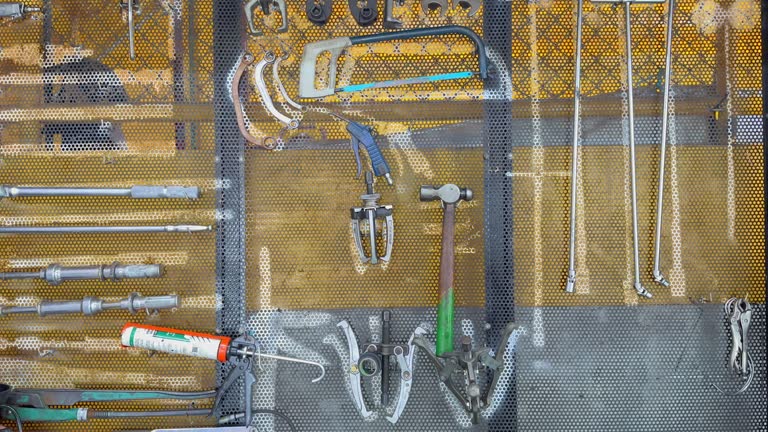Compare the Best Auto Hobby Shops for Car Enthusiasts
Car enthusiasts understand the importance of finding the right auto hobby shop. These spaces offer tools, expertise, and a community of like-minded individuals passionate about automotive excellence. This article explores the best auto hobby shops, comparing their features, services, and unique benefits.
1. Why Auto Hobby Shops Matter

Auto hobby shops play a pivotal role in supporting automotive enthusiasts. These establishments provide access to specialized tools, repair bays, and expert advice. Whether you are restoring a classic car or performing routine maintenance, a quality shop can make the difference between frustration and success.
2. Criteria for Evaluating Auto Hobby Shops
When selecting an auto hobby shop, consider the following factors:
- Equipment Availability: Does the shop offer professional-grade tools and machinery?
- Accessibility: Is the location convenient and open during hours that suit your schedule?
- Expert Support: Are there professionals on-site to provide guidance?
- Membership Options: Does the shop offer affordable membership plans or pay-as-you-go options?
3. Top Auto Hobby Shops in the Market
a) Hobby Car Garage
- Location: Nationwide branches.
- Features: Advanced tools, paint booths, and welding equipment.
- Services: DIY workshops and personalized assistance.
- Pros: Affordable pricing, exceptional staff support.
- Cons: Limited parking at peak hours.
b) DIY Auto Club
- Location: Primarily in urban areas.
- Features: Spacious repair bays, diagnostic scanners, and tire-changing machines.
- Services: Monthly membership plans with unlimited access.
- Pros: Comprehensive services tailored for hobbyists.
- Cons: Slightly higher membership fees.
c) Wrench and Ride
- Location: Predominantly in suburban areas.
- Features: State-of-the-art equipment, including lifts and alignment tools.
- Services: Guided repairs and free tool demonstrations.
- Pros: Flexible payment plans.
- Cons: Limited locations compared to competitors.
4. Unique Offerings in Auto Hobby Shops
Auto hobby shops go beyond providing tools. Many shops host events, such as car shows or restoration competitions. These events foster community spirit while showcasing members’ skills. Additionally, shops often feature educational programs that cater to beginners and advanced enthusiasts alike.
5. Benefits of Joining an Auto Hobby Shop
- Cost-Effective Repairs: Save on expensive professional services by performing repairs yourself.
- Skill Enhancement: Learn new techniques with expert guidance.
- Networking Opportunities: Connect with fellow enthusiasts who share your passion.
6. Factors to Consider When Choosing the Right Shop
- Reputation: Check reviews and testimonials from other enthusiasts.
- Proximity: A conveniently located shop will encourage frequent visits.
- Safety Measures: Ensure the shop prioritizes safety with proper gear and regulations.
7. Tips for Maximizing Your Auto Hobby Shop Experience
- Attend workshops to gain hands-on experience.
- Network with other members to share tips and ideas.
- Keep a personal checklist of projects to stay organized and focused.
8. Conclusion: Choosing Your Ideal Auto Hobby Shop
Selecting the best auto hobby shop depends on your specific needs and goals. Consider the shops discussed above, their features, and your personal preferences. Investing time in finding the right space will enhance your automotive journey, turning every project into a rewarding experience.
FAQs: Auto Hobby Shops
1. What is an auto hobby shop?
An auto hobby shop is a facility designed for car enthusiasts, providing tools, repair bays, and expert guidance. It allows individuals to work on their vehicles, whether for maintenance, restoration, or upgrades, in a professional-grade environment.
2. Are auto hobby shops suitable for beginners?
Yes, many auto hobby shops cater to beginners by offering workshops, tutorials, and staff assistance. These resources help new members learn essential automotive skills while gaining hands-on experience.
3. What services can I expect at an auto hobby shop?
Common services include:
- Access to professional-grade tools and equipment.
- Repair bays with lifts and alignment tools.
- Workshops on DIY repairs and vehicle maintenance.
- Community events like car shows or restoration competitions.
4. How much does it cost to use an auto hobby shop?
Costs vary depending on the shop and services. Some shops offer affordable membership plans starting at $50 per month, while others charge pay-as-you-go rates, typically around $20–$30 per hour.
5. Do I need to bring my own tools?
No, most auto hobby shops provide a wide range of tools and equipment. However, if you prefer using personal tools, some shops may allow you to bring them along.
6. Can I restore a classic car at an auto hobby shop?
Absolutely! Many shops are equipped with specialized tools and paint booths ideal for restoring classic cars. Staff or fellow enthusiasts can also offer valuable advice during the restoration process.
7. Are there any safety requirements?
Yes, auto hobby shops typically enforce strict safety guidelines. Members may be required to wear protective gear such as gloves, goggles, or steel-toed boots. Shops also provide safety training for using equipment.
8. How do I choose the best auto hobby shop?
Consider factors like proximity, equipment quality, membership costs, and customer reviews. Visiting the shop to assess its environment and services can also help make an informed decision.
9. Can I find auto hobby shops in rural areas?
While many shops are located in urban or suburban areas, some cater to rural communities. Online directories or forums dedicated to automotive enthusiasts can help locate nearby options.
10. Are auto hobby shops environmentally friendly?
Some shops prioritize eco-friendliness by recycling materials, using energy-efficient equipment, and offering advice on sustainable automotive practices. Check with your local shop to see if they adopt these measures.